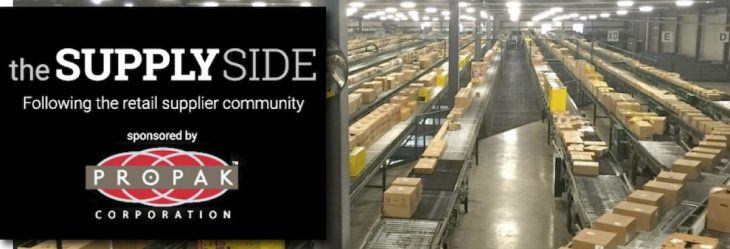The Supply Side: Online commerce rise increases counterfeit risk
by December 5, 2020 9:58 am 537 views

Online retail sales have exploded in 2020 because of COVID-19, which can be a mixed blessing for big retailers and their suppliers.
Keith Goldstein, chief operating officer of software firm VerifyMe, said there is a higher risk of counterfeit goods this holiday season as consumers seek the lowest prices with the ease of ordering online.
“The combination of bargain-hunting consumers doing more shopping more online is a big opportunity for counterfeiters this holiday season,” Goldstein told the Northwest Arkansas Business Journal.
At a macro-level, a January report from the U.S. Department of Homeland Security indicated total dollars displaced by counterfeit goods are expected to reach $1.2 trillion by 2022 and $4.5 trillion by 2024. The report cites the rapid rise in third-party marketplaces as a catalyst for counterfeit growth.
Earlier this year, Walmart shoppers were surprised when face masks they ordered online never arrived. A few dozen fraudulent sellers used fake tracking numbers and other deceptions that fooled consumers.
Walmart suspended the sellers. The retail giant does have a more stringent sign-up process than Amazon for new marketplace sellers. According to Marketplace Pulse, Walmart has grown its marketplace sellers to more than 63,000 as of mid-November, an increase of more than 28,000 this year.
Amazon reports 5 million marketplace sellers, adding more than 1 million this year. In March, Amazon customers were also fooled by rogue third-party marketplace sellers promising hand sanitizer, face masks and other essentials. Amazon also blocked the dishonest sellers while trying to make its customers happy. Bad actors charged $39 in shipping for a $2.99 bottle of hand sanitizer. They scammed shoppers into believing they were buying N95 carbon-activated filter masks, only to receive masks with “paper towel” pads and not the carbon filtration system.
Goldstein said counterfeiters are opportunists and will be busy during the holiday season as tighter household budgets and increased online sales create a perfect storm scenario.
VerifyMe, based in Rochester, N.Y., has worked to develop and deploy technologies to manufacturers to prevent counterfeit sales while giving consumers the ability to check product sources and history. Goldstein said the coding technology is stamped on the manufacturer’s product at a cost of about 2 cents per item. The code is stored in the cloud and provides opportunities for tracing the history of a product and brand storytelling.
“When a consumer gets the item home, they can scan the code with their smartphone and verify its authenticity on the spot. This also gives brands direct engagement with the end-user and provides opportunities for marketing with coupons or storytelling by the manufacturer,” Goldstein said.
He said because all the data is stored in the cloud, it’s easily accessible by all the stakeholders. Goldstein said product and supply chain transparency continues to be essential for consumers and brands. The company is working with several industries to test and use the technology to protect against counterfeiters and push branding messages out to consumers.
“The biggest interest is coming from products used in the body and on the body,” he said.
Nutraceuticals, or products derived from food sources with health benefits, are a significant area for VerifyMe. He said the interest from CBD and cannabis products are in demand. CBD has ranked among the fastest-growing segments of the burgeoning cannabis industry, and it’s fraught with scams.
Goldstein said the company is also working with a U.S. ginseng supplier that ships products to Asia. He said by using the VerifyMe technology, the brand can assure customers the products are authentic, all the way to the seeds used in their production.
VerifyMe also works with a beer supplier, shampoo supplier and a cosmetics company wanting to use the technology to tell brand stories and give their consumers complete trust in product authenticity.
Goldstein said the company is also in talks with retailers to ensure products sold online and returned in stores are valid. With more online sales via marketplaces and retailers allowing for items to be returned inside stores, he said there has been a rise in consumers trying to return items sold by someone other than that retailer.
“Because we know the life cycle of a product, the retailer could scan the code and know instantly if they or a competitor sold it. These discussions have just begun, and we are working with them to provide insights and tools for better tracking and validation based on the point of sale,” he said.
VerifyMe reported a 79% uptick in revenue growth for the third-quarter ending Sept. 30. The company’s net loss expanded to $706,548 in the period. Still, CEO Patrick White said the strong cash position of $9 million and new business partnerships created positive momentum for the next 12 months.
Goldstein said the biggest hurdles for business growth have been getting companies to act. He said with many executives working from home, it’s easy to get a virtual meeting, but then getting them to make a decision is slow. He said many companies had built the cost of fraud into their business plans. Trying to get them to look at paying for prevention and accessing marketing opportunities with the VerifyMe technology often involves two different departments — operations and marketing.
“VerifyMe puts the power in the hands of consumers, and brands who recognize the value of this proposition will be among the first to crack down on counterfeiters,” he said.
EDITOR’S NOTE: The Supply Side section of Talk Business & Politics focuses on the companies, organizations, issues and individuals engaged in providing products and services to retailers. The Supply Side is managed by Talk Business & Politics and sponsored by Propak Logistics.
